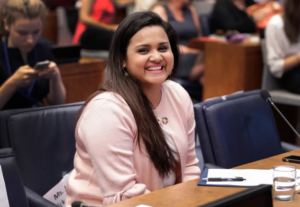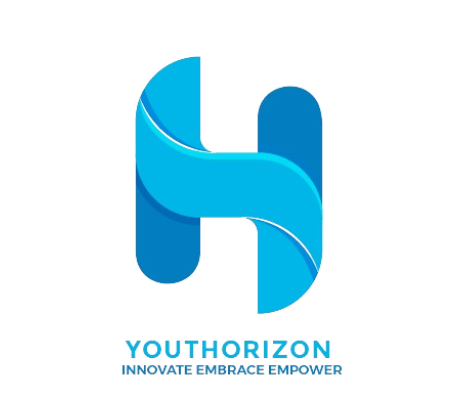The youth contribute
There are currently 1.8 billion youth in the world aged between 10–24 years, they are the largest young generation in history. Nearly 90 percent of them live in developing countries. where they constitute the majority of the population.
Their numbers are expected to continue to grow between 2015 and 2030 alone, with around 1.9 billion young people expected to be 15 years old. Connected to each other like never before, young people want and are already contributing to the resilience of their communities, proposing innovative solutions, driving social progress and inspiring political change. They are agents of change who mobilize to advance the goals of the SDGs to improve human life and the health of the planet.
By being given the skills and opportunities necessary to reach their potential, young people can become a driving force to support development and contribute to peace and security. Youth-led organizations need to be encouraged and empowered to participate in translating the 2030 Agenda into local, national and regional policies.
In this regard they have an important role in implementing, monitoring and reviewing the agenda as well as in maintaining government accountability. With political commitment and adequate resources, young people have the potential to most effectively transform the world into a better place for all.
United Nations and Youth
Based on its global convening role, the UN is in a unique position to act as an umbrella and responsible organization for the younger generation as well as a platform that can meet their needs, voice their opinions and increase their involvement in the international world.
The UN fully embraces the diversity of young people in all its forms. Therefore, the UN uses and advocates methods and approaches that reflect this diversity to ensure that all young people can achieve full inclusion, empowerment and development. The UN embraces young people as rights holders and encourages and facilitates transparency, accountability and responsiveness of governments, international organizations and other parties towards young people.

The Secretary General’s Envoy for Youth
Jayathma Wickramanyake was appointed as the UN Secretary General’s Youth Envoy in June 2017. As a global advocate for youth, she works to ensure the participation of young people on the issues that matter to them, giving them a voice at the UN and around the world. By making a real contribution to the SDGs, he is also bringing the UN’s work closer to young people around the world.
Young Leaders for SDGs
In September 2016, the inaugural class of 17 young leaders was announced. Organized by youth delegates, the young SDGs leaders come from a variety of backgrounds, sectors and regions and are recognized for their leadership and contribution to a sustainable world.
Young leaders work with youth delegates to engage young people in advocating for the achievement of the SDGs in an accessible and innovative way and contribute to the brain trust that supports UN efforts to mobilize young people. The new Young Leaders class will be announced in September 2022.

The Role of Youth and SDGs
- Critical Thinker: Part of being young is making sense of personal experiences and asking questions about the world around you. Youth have the capacity to identify and challenge existing power structures and barriers to change, as well as uncover contradictions and biases.
- Changemakers: Young people also have the power to act and mobilize others. Youth activism is on the rise around the world, supported by greater connectivity and access to social media.
- Innovators: In addition to providing a fresh perspective, young people often have first-hand knowledge and insight into issues that adults don’t have access to. Teenagers best understand the problems they face and can offer new ideas and alternative solutions.
- Communicators: Outside the international development sector, few people realize that world leaders have reached a historic and far-reaching agreement to improve the lives of people and the planet by 2030. Young people can be partners in communicating the development agenda to peers and peers ‑their colleagues. communities at the local level, as well as across countries and regions.
- Leaders: When young people are empowered with the knowledge of their rights and equipped with leadership skills, they can drive change in their communities and countries. Youth-led organizations and networks, in particular, must be supported and strengthened, as they confront

